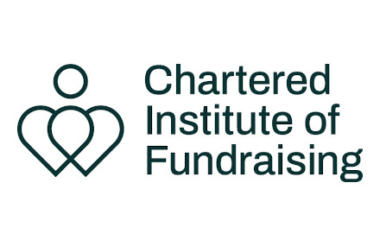The Chartered Institute of Fundraising said it will make changes to its complaints and disciplinary procedures, as part of an action plan to ensure harassment is dealt with.
Today it announced that it has accepted all 18 recommendations from a learning review and explained what changes it will make over the coming months.
Trustees have also apologised to those who have been let down and said in a statement this afternoon: “We want to apologise to the women who have been let down by the Chartered Institute of Fundraising and to everyone who has been upset, frustrated, and angry in relation to reports of sexual harassment.”
The reformed complaints procedures removes responsibility for investigating complaints from senior staff and trustees. Complaints will now be handled by a new safeguarding and complaints manager and all complaints will be recorded, regardless of how they are submitted.
The Chartered Institute says it is investing an initial £50,000 into introducing the changes.
Last December the HR consultant Tell Jane carried out a review of how complaints had been handled since 2019, when changes were last made. It made 18 recommendations in total and a summary has been published today with the action plan.
The Chartered Institute said it will adopt all of them, as well as taking further steps.
'We will do better'
The Chartered Institute confirmed last week that it had received eight complaints since 2019, including complaints about sexual harassment, and had imposed sanctions on perpetrators.
However, it has also been strongly criticised over how it has handled allegations, particularly the requirement for a formal complaint to be made, as well as the tone of an earlier statement.
Chief executive Peter Lewis announced his resignation this month, after nearly a decade in charge.
Today the trustees said: “Raising concerns takes courage, and those who do so deserve to be taken seriously and treated with respect and sensitivity. We will do better in how we respond to those who come forward.
“We will admit to mistakes, apologise for them and share that learning openly.
“Your work, and your professional membership body, must be safe.
“Sexual harassment is never acceptable, and every single instance must be treated seriously and with respect and sensitivity.
“The culture change that is needed must put your safety first. Our starting point must be to always believe people who come forward.
“We know the organisation has a long way to go and that we are only a few steps into our journey.
“Our ambition is to create a culture where everyone is not just safe, but able to truly thrive.
“This will take hard work, and we promise you that we are ready for this.”
Culture, safeguarding and standards
In a new action plan, published today, the Chartered Institute said that two trustees, Nadine Campbell and Isobel Michael, will help set up a formal safeguarding task force.They will be supported by Lucy Caldicott, one of the Chartered Institute's fellows.
This will recruit the new safeguarding and complaints manager, who will oversee many of the other changes set out today.
Other new work includes the creation of a culture board to lead “long-term, systemic culture change” at the Chartered Institute. This will be set up by Ruth Davison and Paul Amadi, both Fellows at the organisation.
In addition, the Chartered Institute will create a Professional Standards Panel, intended to “improve the governance arrangements in relation to our complaints and disciplinary processes”. It will report to the trustees four times a year.
The trustees have committed to developing terms of reference for the three groups within a month, with open recruitment within the next three months.
Any decisions will be brought to the AGM in July so that changes to complaints and disciplinary regulations will be in place by August.
The Chartered Institute has also committed to publish an annual review of its progress and an annual safeguarding review.
Revisit old complaints
Under other recommendations agreed with Tell Jane, the Chartered Institute said that in the next three months it will “review any historic complaints that were not investigated as complainants did not wish to make a formal complaint, or put it in writing, to assess whether there is any further action required”.
It committed to ensure that “every single concern or complaint will be recorded, however submitted” and will “continue to pursue members alleged poor behaviours if they leave” the Chartered Institute.
The organisation invited feedback on its plans, adding: “We are listening, and the change we all want starts now.”
People can email [email protected] with any comments.
Related articles










